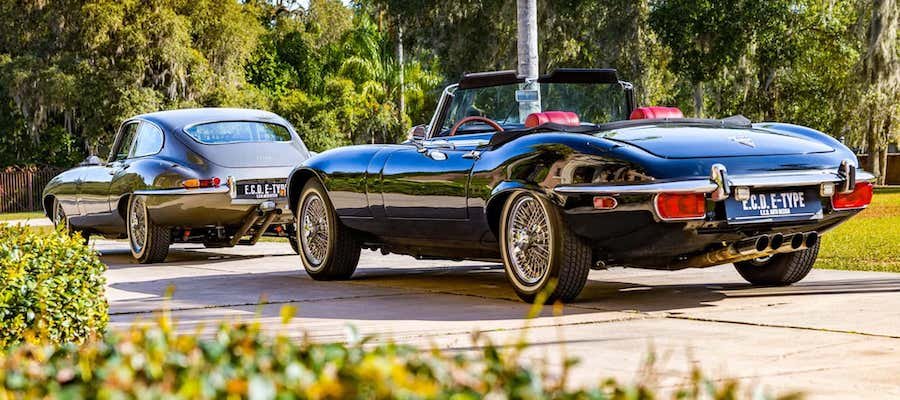E.C.D.'s EV Powertrain Doesn't Require Any Structural Changes

As the automotive industry rapidly evolves towards electrification, high-voltage batteries are finding their way into various applications. From mining trucks to hydrofoil boats, electric powertrains are finding their homes in many unsuspecting vehicles. But one area is particularly fascinating: the classic car domain. Due to the high-torque nature of electric motors and battery packs that allow for a low center of gravity, swapping an old gas-guzzling engine for a battery pack and electric motors provides a quieter, faster, and more refined driving experience.
Florida-based automaker E.C.D. Automotive Design Inc. has been working on precisely that. Founded in 2013, the automaker began by restoring and rebuilding classic Land Rovers. In 2021, the firm entered the world of electrification by offering an EV option on its menu. In the following years, E.C.D. added the E-Type and Beach Runner to its lineup, consisting of the Defender 90, Defender 110, and Range Rover Sport. Considering some of these vehicles are of vastly different proportions, it begs the question: how does E.C.D. implement an electric powertrain into an aging ICE-powered vehicle?
E.C.D. is now on its second-generation EV powertrain. When it was solely working on Land Rovers, the battery pack was effectively two large boxes (one placed in the engine bay and one in the trunk) of refurbished Tesla Model S battery cells. The powertrain was functional, though it could only work in large vehicles and lacked some features like DC fast charging.
The second-generation EV powertrain option can be implemented in a wider variety of vehicles, like the recently added E-Type. It offers fast charging, and it requires no structural changes. For instance, E.C.D. said a customer decided to switch back their EV powertrain build for a V8.
Owners will still need to have their vehicles shipped to E.C.D.'s facility for the powertrain replacement. Some other companies infusing lithium-ion battery cells into classic cars use skateboard platforms, but E.C.D. thinks that will detract from the car's feel. "Our intention is always to maintain as much of the characteristics of the car as you can," Wallace said. E.C.D.'s goal is to simply electrify the E-Type, not make it a Tesla Model 3 with the shell of a classic car.
The $299,995 E.C.D. Jaguar E-Types get a 42kWh battery pack, and the $249,995 Land Rovers get an 82kWh one. E.C.D. says this yields a respective range of 150 and 200 miles, though, in the boxy Land Rovers, it is fair to expect a significant range penalty when driving on the highway. Since these are fast charge capable, driving one on small road trips can be much more feasible than if it were fitted with the older powertrain. Based on E.C.D.'s claim of a 10 to 80 percent charge in under an hour, we can extrapolate this to be a peak charge rate of around 50 kilowatts in the E-Type and 100 in the Defender.
Despite the benefits of the EV powertrain, E.C.D.'s boss, Scott Wallace, says that electric powertrains only make up a small percentage of its orders. But for customers in regions where emissions laws mean they can't register their build by a particular year, this gives them the option to enjoy a V8 powertrain until regulations kick in, requiring the emissions to be lower— or zero.
As the world progresses to stricter emissions laws, electrifying classic cars is a way to future-proof them well in the 21st century.
Note: This article was edited to ensure non-clients cannot have their vehicles swapped with an EV powertrain.
Related News
